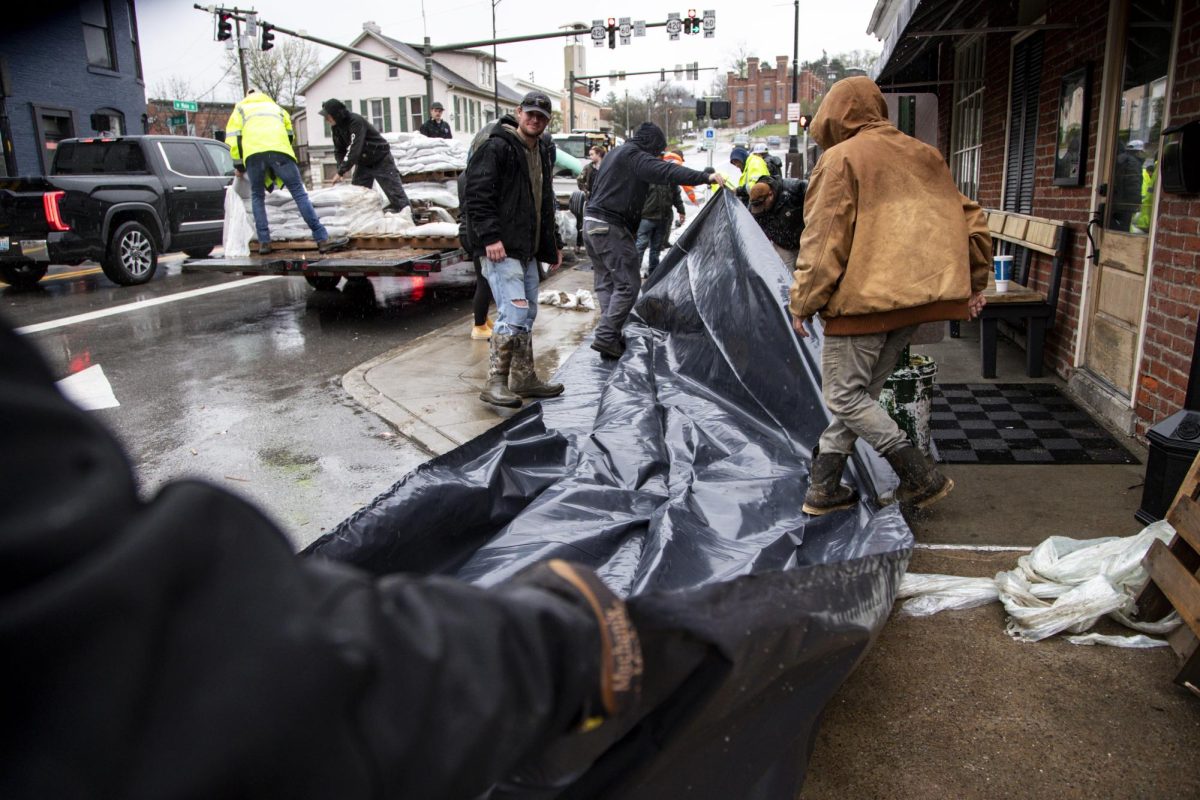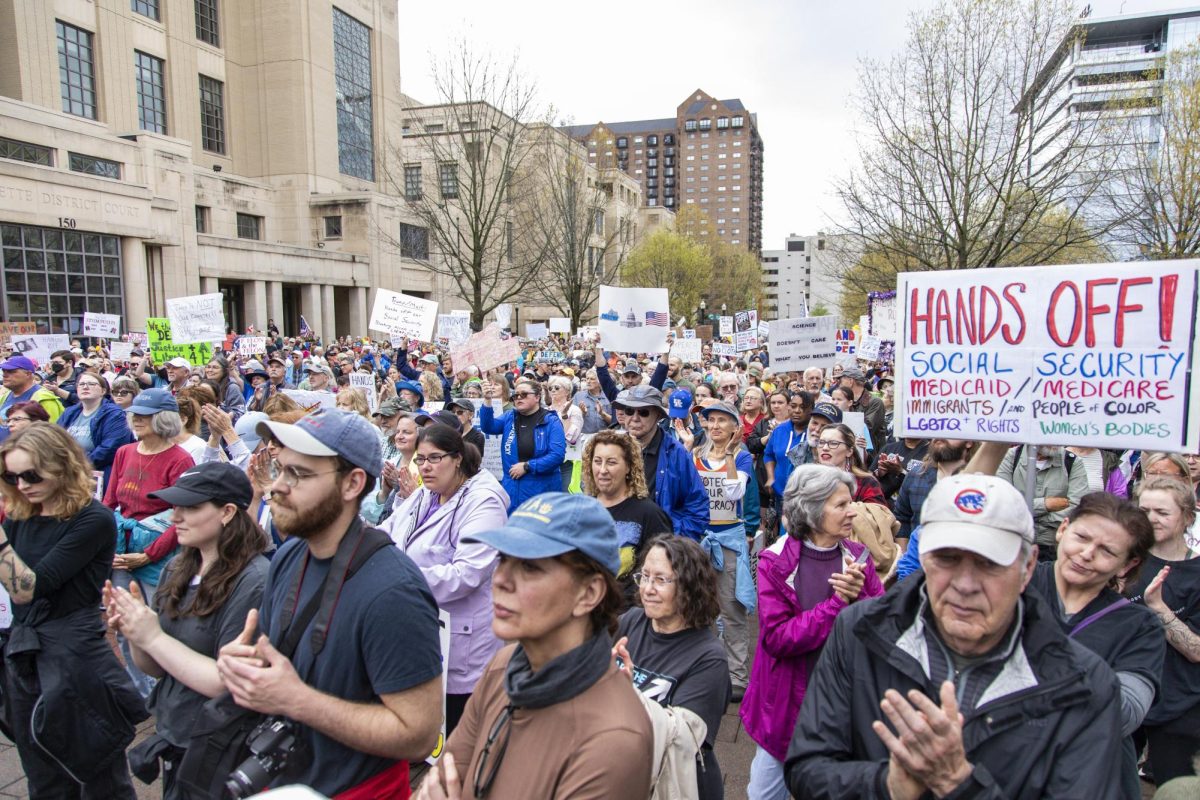The United States stock market index took a downturn following China’s retaliatory tariffs on Friday, April 4.
Since President Donald Trump’s new tariffs, inflation rates are likely to increase, negatively impacting the stock market, according to U.S. News.
Federal Reserve Chair Jerome Powell said to expect higher inflation and slower growth in the market at minimum.
“Our obligation is to keep longer-term inflation expectations well anchored and to make certain that a one-time increase in the price level does not become an ongoing inflation problem,” Powell said.
According to Trump’s press secretary Karoline Leavitt, in a press conference, other countries have been “ripping off” the United States through tariffs, including Japan’s 700% tariff on rice, India’s 100% tariff on agricultural products and Canada’s 300% tariffs on butter.
“It’s time for reciprocity and it’s time for a president to take historic change to do what’s right for the American people,” Leavitt said.
Currently, Trump’s new tariffs have led to the biggest Dow “wipeout” since 2020, The Associated Press said. Dow, also known as the Dow Jones Index, is a stock market index used to gauge the health of the world’s economy, according to Forbes.
According to CNN, the Dow plunged by 2,231 points, or 5.5%, signifying a “key sell-off” or market downturn. The Cambridge Dictionary defines a downturn as a known as a period of decline or reduction in the value of the success of a market.
NBC News business and data correspondent, Brian Cheung, defined the impacts of the new tariffs on the U.S. and what to expect from them.
Cheung said the new tariffs would impact pricing for goods and services including: food, technology, cars, liquor and clothing.
“Over 90% of the clothes that we sell in the United States are made abroad which means that . . . clothing prices could go up by 17%,” Cheung said.
According to MSNBC, prices for goods and services would increase, including cars by 8%, shoes by 8% and produce by 4%.
“It’s (price increases) not necessarily going to happen immediately when these reciprocal tariffs take effect,” Cheung said. “But it won’t be long.”
Former Deputy Director of the National Economic Council Bharat Ramamurti discussed on MSNBC how soybeans could be impacted, a larger agricultural industry for Kentucky, according to the University of Kentucky’s Department of Plant and Soil Sciences.
“All of a sudden, American soybeans are going to be 30% higher in China,” Ramamurti said. “This could be a permanent reduction in the export markets for American producers.”
According to WHAS11, reports show that Kentucky businesses could pay $4.1 billion in new taxes through Trump’s tariffs including the auto, steel and agriculture industries.
“Anytime you implement a tariff and you see retaliatory tariffs, like we did in 2018 from China, you’re going to see harm come to soybean farmers, corn farmers, folks in those industries,” Nick Messenger, Ohio River Valley Institute economist said.
Kentucky’s total exports have increased from $20 billion to $40 billion within the last 10 years, including exports with the European Union, WKYT said.
Ashli Watts, president and CEO of the Kentucky Chamber of Commerce, said Kentucky businesses rely heavily on “strong, healthy trade relationships,” saying these tariffs have the potential to disrupt the economy.
“As the state’s largest business association, the Chamber strongly opposes the implementation of tariffs,” Watts said. “Tariffs will not solve our border problems and will send prices soaring, costing the average Kentuckian up to $1,200 (in taxes).”
Chief communications officer of Commerce Lexington, Mark Turner, said he supports open trade policies, fewer federal regulations and less taxation.
“We (Office of Commerce Lexington) remain concerned about the potential negative economic impact of tariff policies on key industries in the Greater Lexington Region,” Turner said. “Including agriculture, advanced manufacturing and bourbon.”
Gov. Andy Beshear previously wrote on Facebook, his concerns about Kentucky’s rising prices and how tariffs could impact Kentuckians.
“It’s going to make our lives as the American people that much more difficult and everything that much more expensive,” Beshear said. “One person made this decision, it’s a bad decision and they (Trump) can ultimately undo this decision.”
According to ABC News, the Kentucky bourbon industry is also preparing to face “collateral damage” from tariffs and expecting concerns internationally.
“The tariff threat is leading to economic volatility for American whiskey,” USA Today said. “Which in turn is rippling through Kentucky as the state’s marquee product works to maintain momentum.”
MSNBC said distilleries continue to “watch and wait” for future impacts on their companies, saying the stock market is a waiting game until more occurs.
In an interview with WHAS11, Beshear said previous tariffs from 2018 impacted Kentucky, resulting in millions of dollars of impact on exports, including the bourbon industry that brings in $9 billion to the Commonwealth.
“That’s not me being a Democratic governor versus a new Republican administration coming in,” Beshear said. “That’s me being the governor of Kentucky talking about a signature industry that’s important to us.”


































































































































































